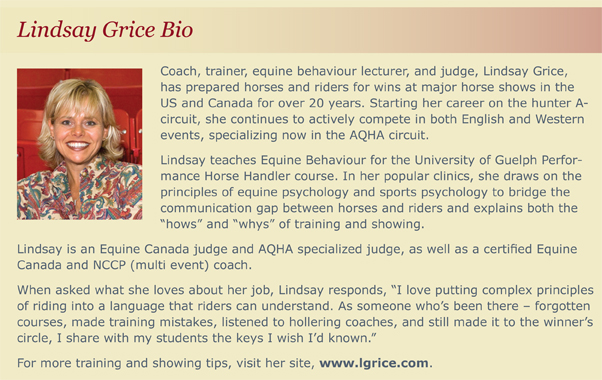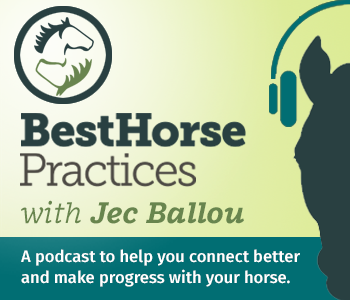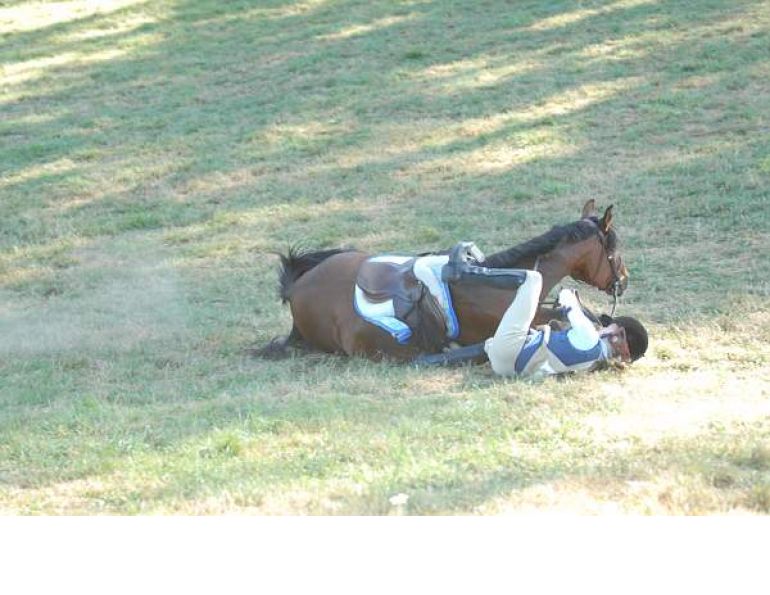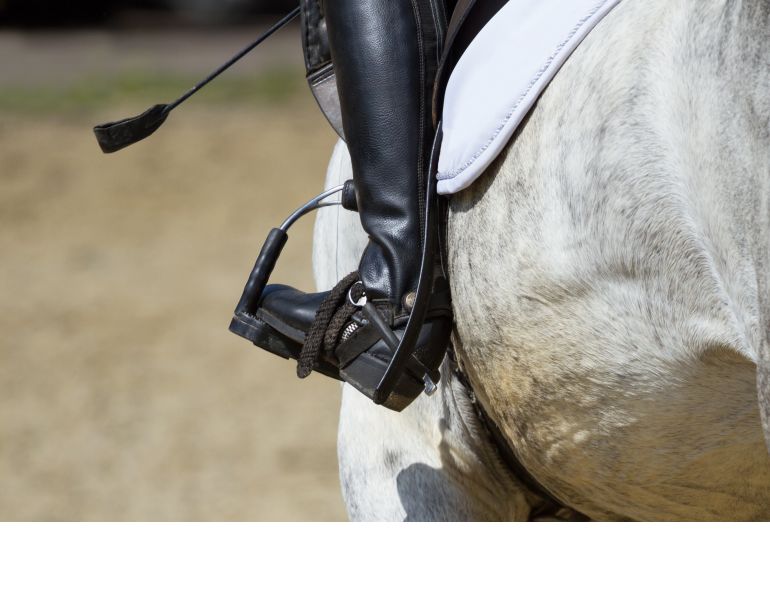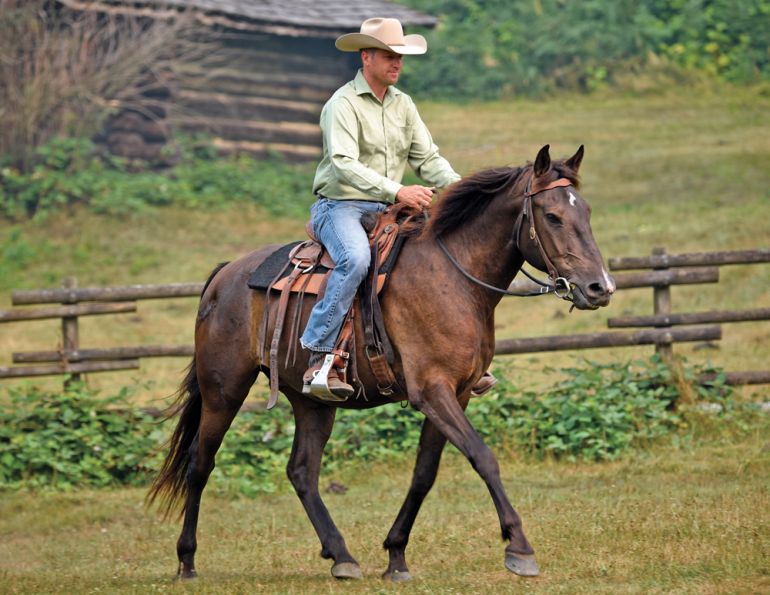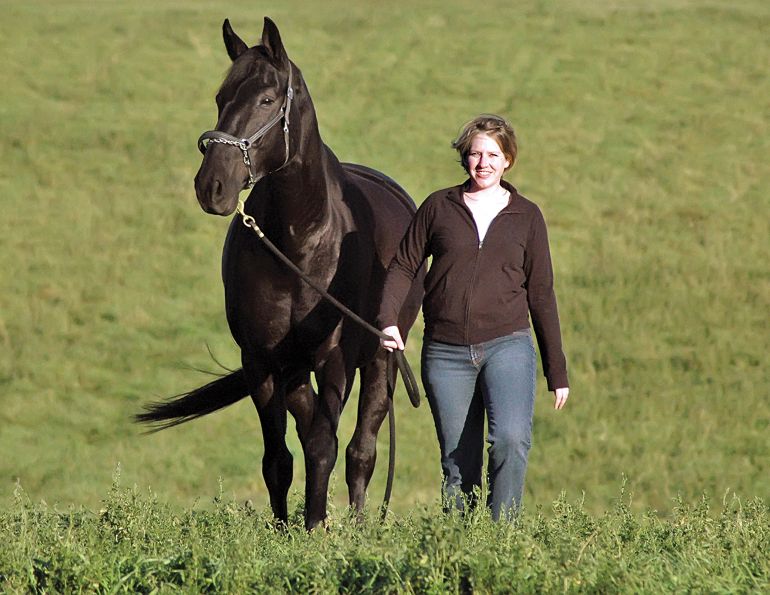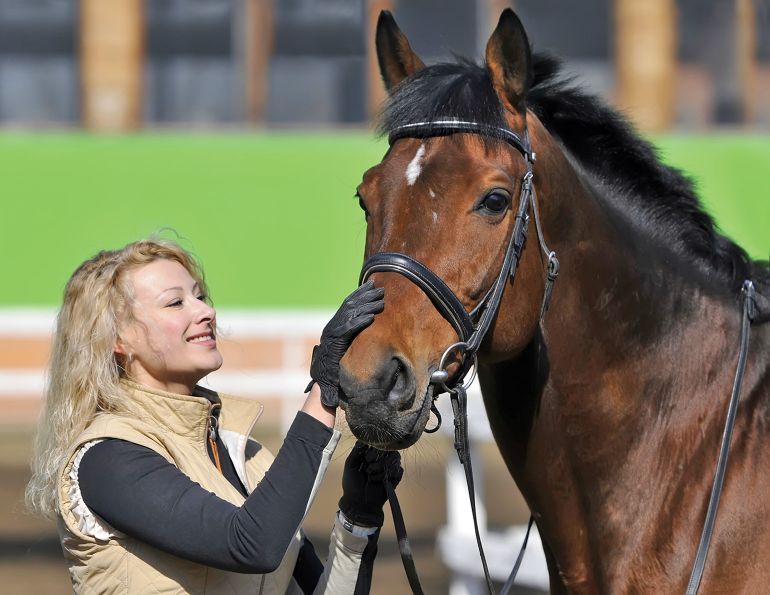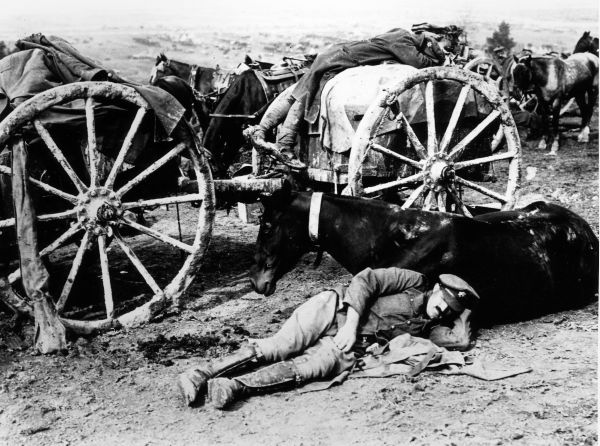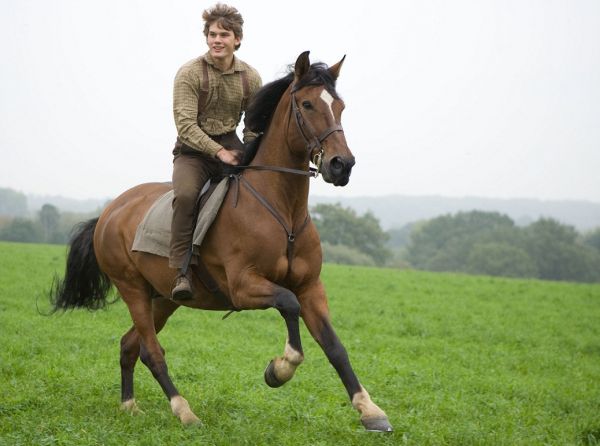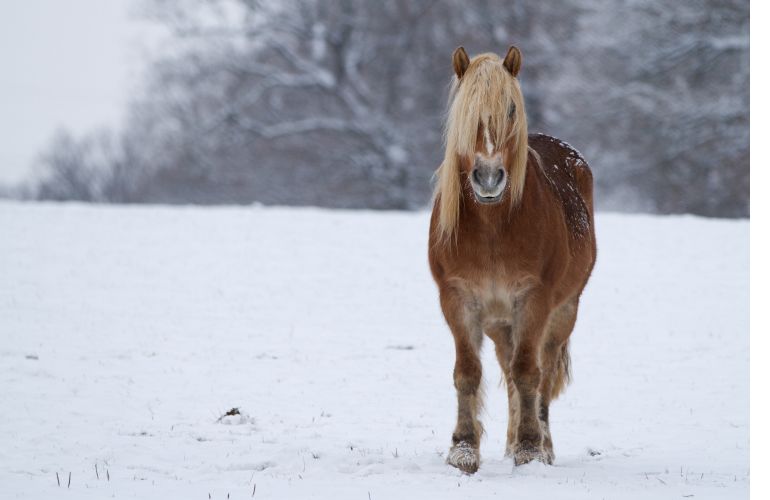By Lindsay Grice
Q Folks at the barn where I board are planning to attend a local show and are encouraging me to book my spot on the trailer. My four-year-old gelding is going well at home, but he’s never been to a horse show. How do I know when he’s ready?
A It’s exciting to get our young prospects out to see how they measure up to the competition, but it’s important not to rush the process. Don’t get caught up in the peer pressure at your barn and push yourself or your horse because you don’t want to let your friends down.
Going out on his first “field trip” can be overwhelming for a young horse whose training foundation has not been completely set. I like to make sure a horse feels “show ready” in his home environment before I take him to a new place. If your pace, transitions, steering control, etc. aren’t in place at home, chances are things won’t magically come together when you get to the show.
Are We Speaking the Same Language?
When you’re training a horse, you’re teaching him a language. You ask questions — slow down your pace, give to the bit, move your hip over, lighten your forehand, extend your stride — and wait for his responses.
|
Try to simulate horse show situations at home. Then, your first few times out, rather than competing, ride in the schooling area and in the show ring during breaks to allow your horse to become comfortable with the surroundings and the equipment you will be using. |
At first he’s only guessing what you might mean. If your horse answers correctly, you give him a “yes” and if he does not respond, you keep asking until he gets the right answer. After many repetitions he starts to figure out that certain pressures mean certain things.
The problem with taking a horse on the road when he isn’t completely fluent in this language is that, with all the added distractions, it’s harder for him to concentrate on what you’re asking. Imagine being left in the heart of a foreign city without your friends or family. You’re unable to read the signs or speak the language to ask for help — scary! It’s even scarier for a horse because he’s a prey animal whose instinct is to flee when he feels vulnerable. That subtle conversation you were having in the quiet indoor arena on his home turf is forgotten among the unfamiliar horse show sights and sounds.
How Things Go Wrong
As a judge and competitor, I’ve seen a lot of bad horse show experiences. From horses that begin to anticipate in the class, to those that refuse to go in the gate, riders falling off, and horses blowing up in accidents that could have been prevented. I’ve seen incidents in the show ring, the warm-up ring, and around the trailers.
If training a horse is like climbing a staircase, many mishaps occur because riders try to skip a step, or even jump to the next landing.
Here are some hints to make sure you’re ready:
#1 Don’t start a debate you can’t win. Though there are no guarantees, whatever you ask of your horse, prepare to follow through until you succeed. As a trainer, my aim is to never have to step back down the training staircase, so I ask in little steps.
In the show ring, it may be impossible to finish what you started and make sure your horse does what you’ve asked without disturbing the other competitors or disrupting the class procedure. Much training can be undone when a horse figures out an escape route because the rider can’t deliver on what she’s asked. So the horse show, rather than furthering your horse’s education, takes it back a step.
As a rule, don’t leave for your first field trip until your horse knows the language of adjusting the stride (extending and slowing each gait), lateral control (leg yields, bending, turns on haunches and forehand), and the basics of collection (yielding to the bit, traveling in a frame).
#2 Simulate some horse show situations at home. Before show day, practice riding right beside and behind other horses, making sure your horse keeps his mind on his job. Practice patterns, courses, and obstacles which are tougher than those you’re likely to encounter in actual competition. Have someone videotape you.
Don’t plan to compete on your first few excursions. Just ride in the schooling area and get into the show ring during the breaks. Make sure both you and your horse are comfortable in the equipment you plan to show with. When you actually do compete, don’t be afraid to school in the ring, asking your horse the questions he’s learned to answer at home. Just make sure you’re not getting in the way of other competitors or irritating the judge.
Taking the time to follow through on every request you make of your horse may keep you out of the ribbons for a little while, but will pay great dividends later!
Main article photo: River Bend Designs - Make your horse’s first show experience a positive one by ensuring that you are both well prepared and speaking the same language at home before heading to the show grounds.




